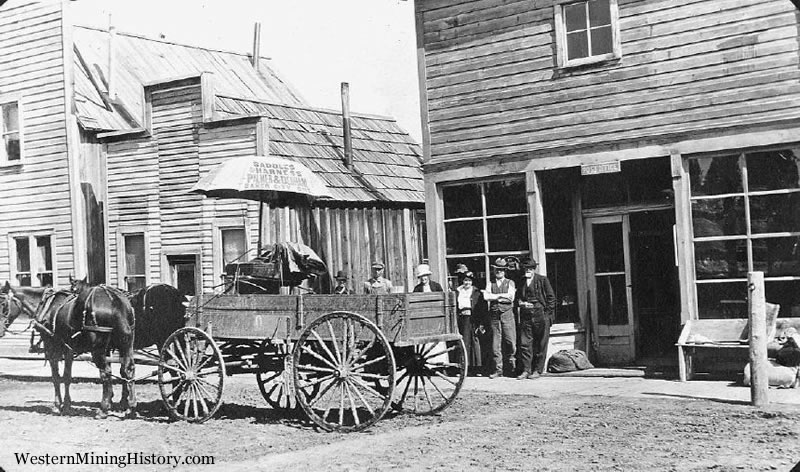Greenhorn City History
Greenhorn was first populated in the 1860s as miners prospected for gold in the area. It was platted in 1904, though it lost two-thirds of its population between 1900 and 1910.
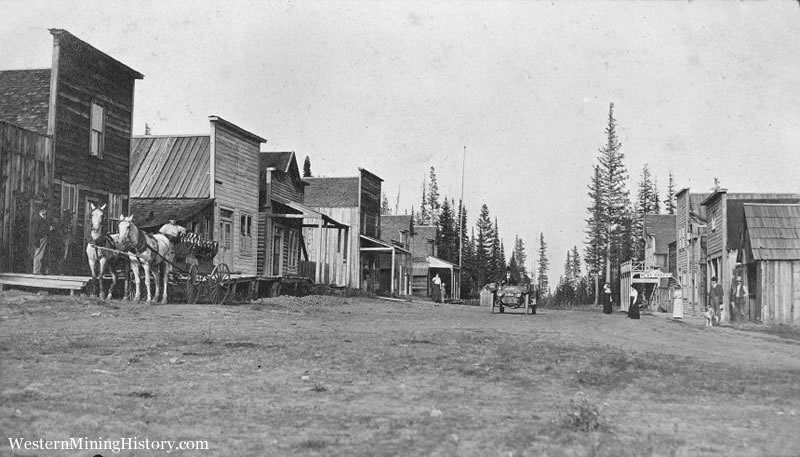
The mining district was composed first of placer mines, but soon many lode gold mines developed. The city was incorporated in 1903. It continued as a viable community until 1942 when gold mining was made illegal by Federal Public Law 208 during World War II.
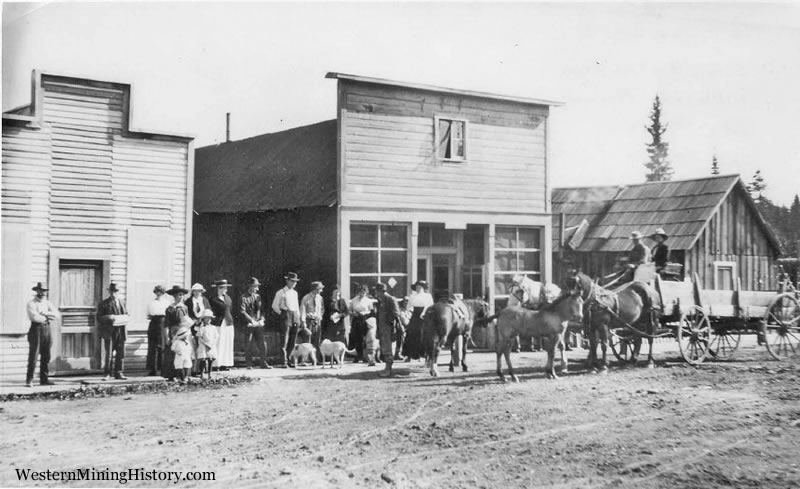
In later years, the old Greenhorn Jail (dating to 1910) was removed to Canyon City under suspicious circumstances. A court case ensued for its return, but because the city straddles the Blue Mountain ridge, the district attorneys of Baker County and Grant County could not even agree in which court house it should be held.
The case was eventually heard by the Circuit Court for Grant County in Canyon City. The jail remains in Canyon City.
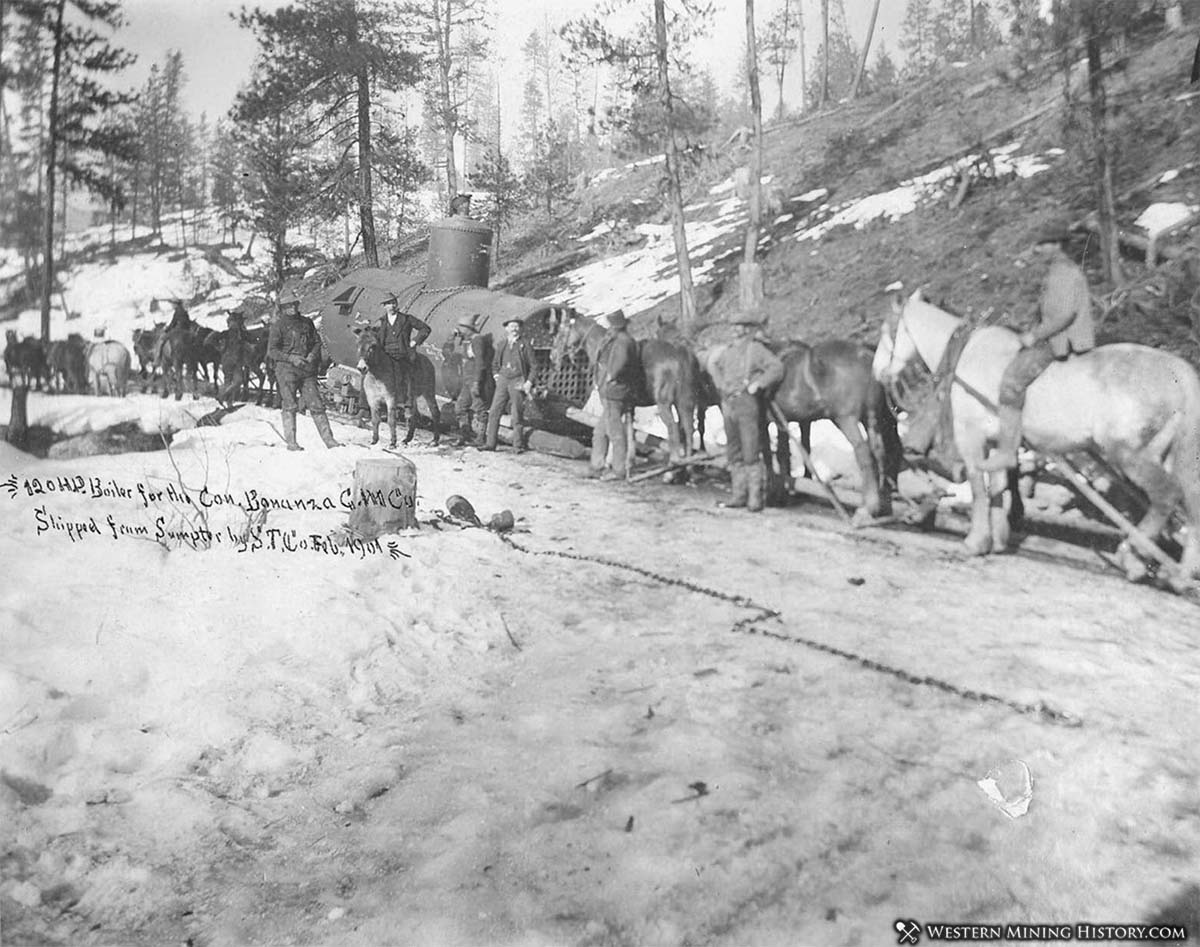
Note that Greenhorn City straddles the Baker and Grant county lines and technically resides in both counties.
Bonanza Mine
The following text was included with photos from the Baker County Library and describes the Bonanza Mine near Greenhorn.
Brooks Hawley notes: A larger sinking plant that cost $150,000 was put in at the Bonanza during 1901 and got going by May, 1902, so guess this picture is of that plant. The shaft was 4.5 ft x 14 ft. in 3 compartments with 2 cages. April, 1903, the shaft was down 1,000 ft. and was called the deepest shaft in Oregon. The last contract on the shaft was for $32.50 a foot, and it went down 30 inches a day.
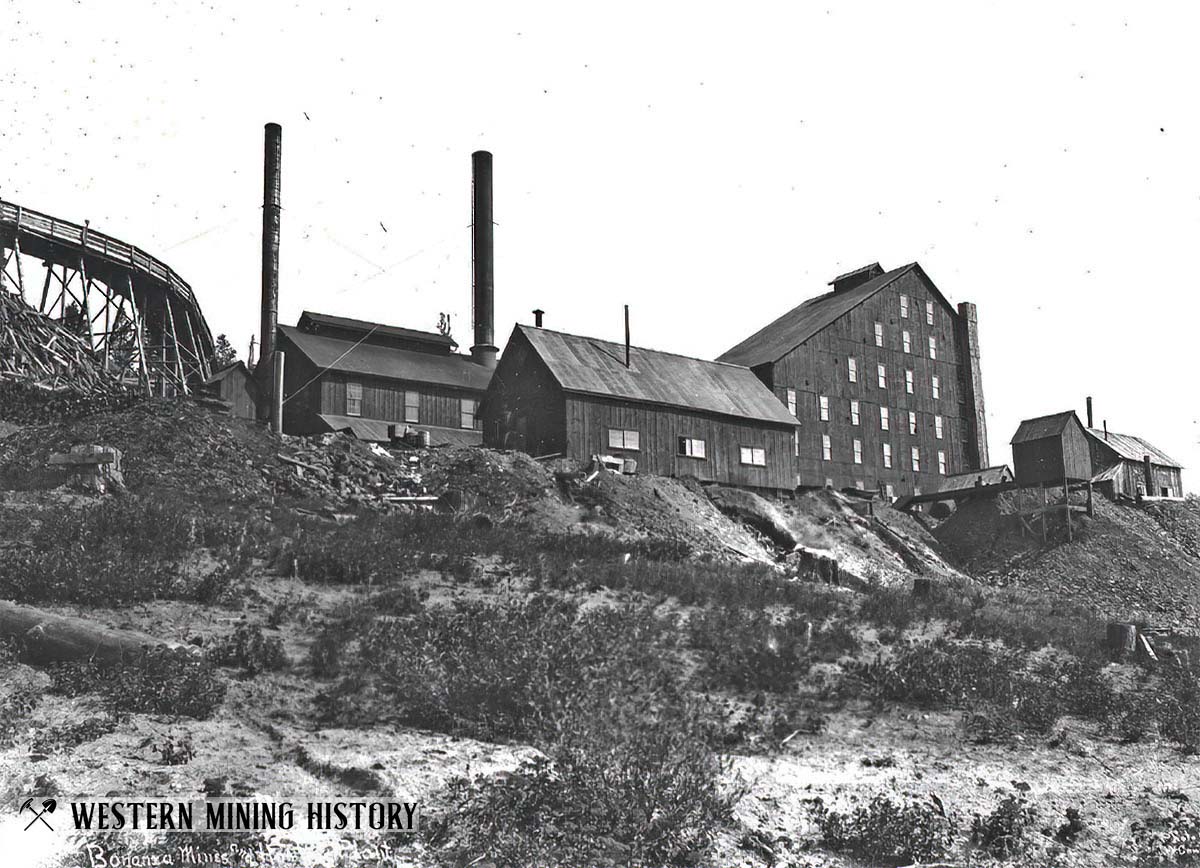
The big activity at the Bonanza was about 1892 to December, 1904. It was located perhaps by Jack Hoggard in 1877, or Daniel Entermell. Al Geiser acquired the mine in 1891, perhaps just on a $2,000 loan his father had made to the mining company, to Mr. Ladd. In 1898, sold the Bonanza to Pennsylvania capitalists, F. P. Hayes and W. H. Thatcher for $500,000, and he seemed to get his pay. Some reports are it was $750,000.
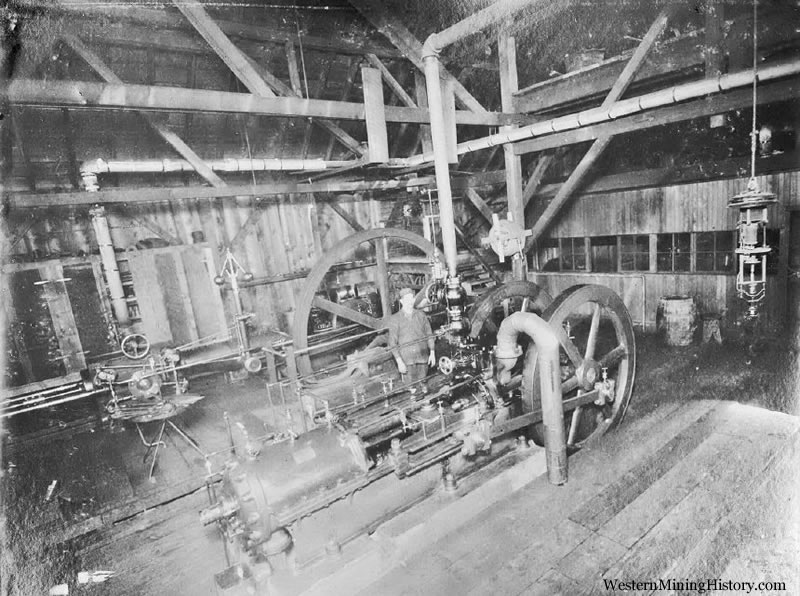
Al Geiser seemed to have an interest at the mine after he sold it. His brothers Ed and Frank ran the Company store. Al Geiser married Bernice Dodson. In later years, Frank Dodson, his brother-in-law, at times worked parts of the mine on leases. Bill Pullman was also brother-in law, married to Emma Geiser, and Prescott Lilley being married to Louise. Pullman it can be assumed some of the original Bonanza fortune is intact. However Al Geiser likely lost most of his fortune on other mining ventures.
A figures for total production of the Bonanza to1916 is $1,750,000. It had ore as high as $20,000 a ton.
Oregon Mining Photos
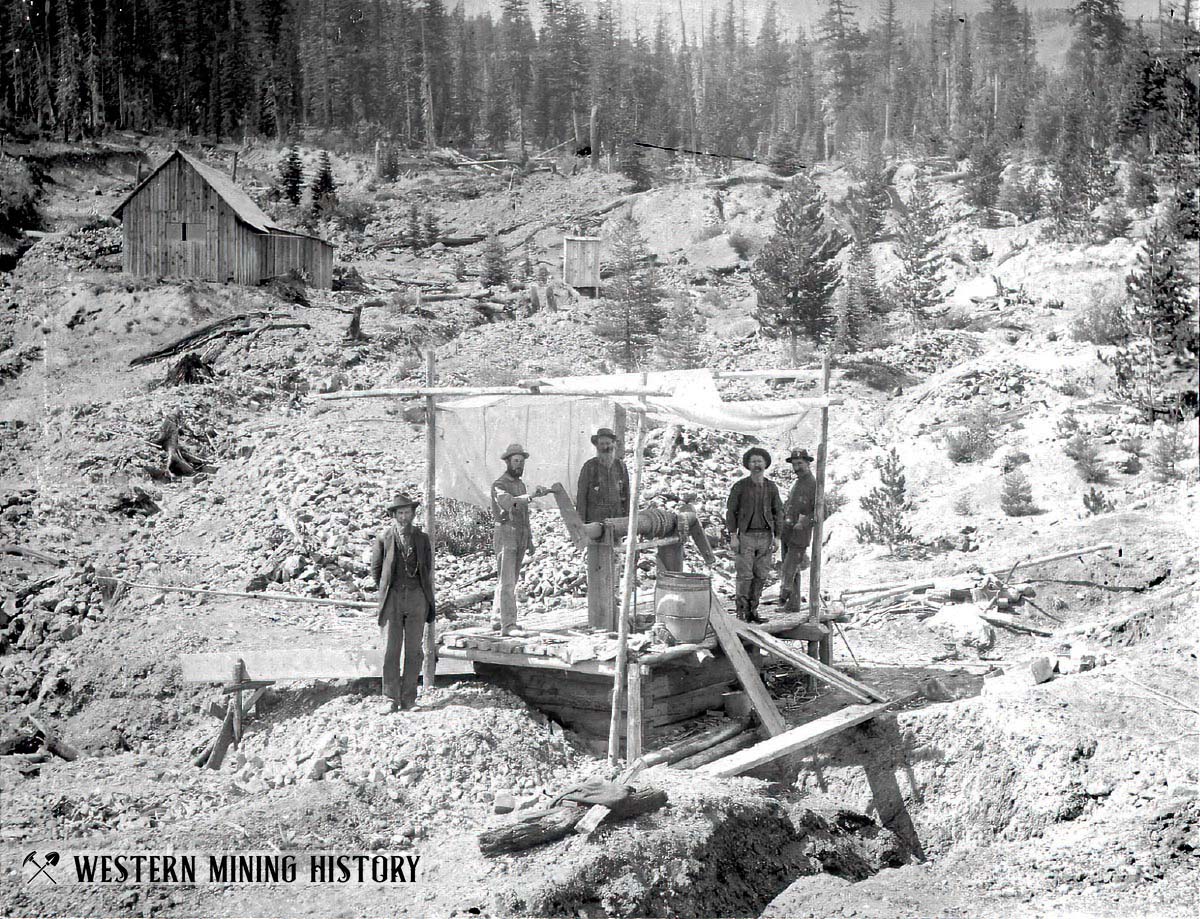
Check out this collection of some of Oregon's best historic mining scenes at A Collection of Oregon Mining Photos.
Oregon Gold
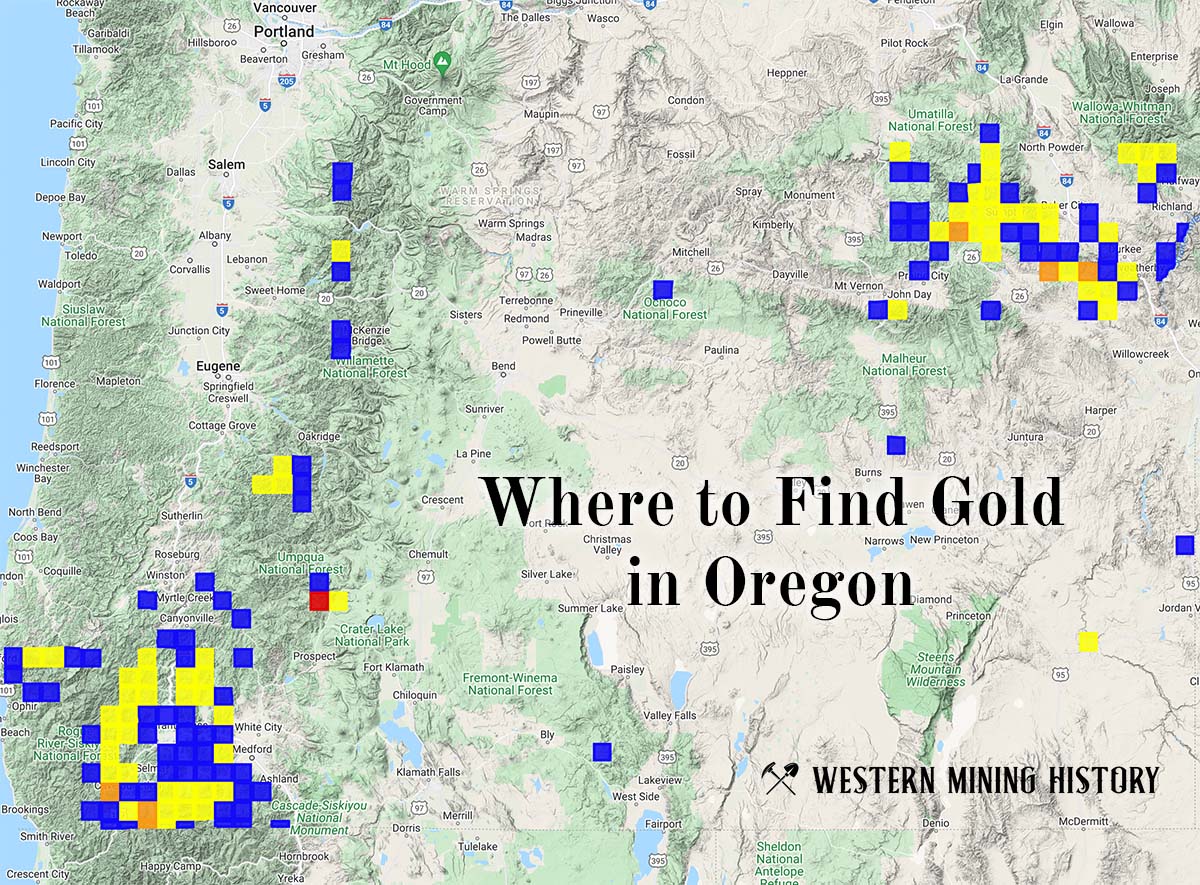
"Where to Find Gold in Oregon" looks at the density of modern placer mining claims along with historical gold mining locations and mining district descriptions to determine areas of high gold discovery potential in Oregon. Read more: Where to Find Gold in Oregon.
